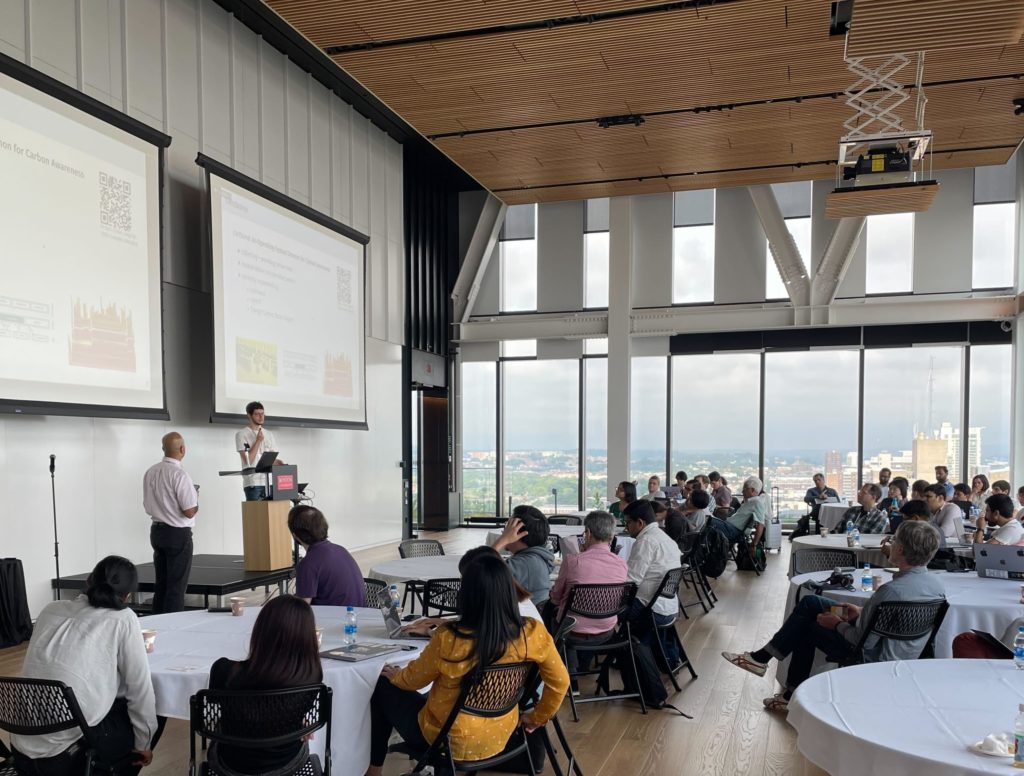HotCarbon’23

The first session focused on systems energy and carbon quantification and optimization, including CPU, GPU, DRAMs, their configuration, tools, and accuracy evaluation. The second session focused on the unique challenges and potential research opportunities related to cloud environments. The third session focused on the unique challenges and opportunities in addressing the rising energy and carbon cost of Data and AI. The fourth session focused on tradeoffs across the life cycle such as embodied carbon calculation, tradeoffs between energy and carbon, and also, global policy issues. The day ended with a panelists Martha Kim (Columbia Univ.), Ramya Raghavendra (Meta), Huamin Chen (RedHat), Andrew Chien (Univ. of Chicago), Sanjay Krishnan (Univ. of Chicago) discussing “Can AI be sustainable?”
The presenters and their papers can be found here. https://hotcarbon.org/2023/program/
The HotCarbon Workshops were started by a collaboration between UC San Diego’s C3-Lab and the University of Washington. C3-Lab includes UCSD Professor George Porter who is also a Co-Director of the Center for Networked Systems (CNS), working alongside Professor Tom Anderson of the University of Washington. This year, the program committee was led by University of Chicago Professor Andrew Chien, and Tamar Eilem from IBM.
The research thrusts of C3-Lab are:
Thrust 1: Design datacenter systems that can adapt to the variability of renewable energy sources.
Thrust 2: Reduce the impact of information and communication technology manufacturing on total carbon footprint of networked systems.
Thrust 3: Develop new teachable material on the environmental effect of computing, as well as mitigation techniques at the hardware, software, and systems levels for reducing this effect. Developing new methods to communicate this research to the public is a key effort of C3-Lab.
